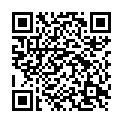|
|
|
| Module code: DFBME-404 |
|
|
2VU (2 hours per week) |
|
2 |
| Semester: 4 |
| Mandatory course: yes |
Language of instruction:
German |
Assessment:
Written exam 60%, presentation 40% Each exam must be passed on its own.
[updated 08.01.2024]
|
DFBME-404 (P610-0322) Mechanical Engineering, Bachelor, ASPO 01.10.2019
, semester 4, mandatory course
DFBME-404 (P610-0322) Mechanical Engineering, Bachelor, ASPO 01.10.2024
, semester 4, mandatory course
|
30 class hours (= 22.5 clock hours) over a 15-week period.
The total student study time is 60 hours (equivalent to 2 ECTS credits).
There are therefore 37.5 hours available for class preparation and follow-up work and exam preparation.
|
Recommended prerequisites (modules):
None.
|
Recommended as prerequisite for:
|
Module coordinator:
Dr. Julia Frisch |
Lecturer: Dr. Julia Frisch
[updated 09.08.2020]
|
Learning outcomes:
After successfully completing this module, students will be able to:
explain intercultural competence models and apply and transfer them to various professional activities and environments
explain critical incidents from multicultural everyday and professional situations with regard to intercultural differences and propose solutions
use case studies from different contexts to work out individual cultural differences and peculiarities for themselves
explain strategies for building and working in multicultural teams and apply them to case studies
put leadership, team and management styles in an (inter)cultural context
critically question their own cultural imprint with regard to communication and conflict resolution in exercises/simulations
[updated 08.01.2024]
|
Module content:
Case studies from professional practice
Team building and work cultures in multicultural teams and projects
Intercultural competence models for different professional fields
Leadership and management styles
Culture shock, international assignments, global assignments
International contrast examples (not limited to Germany and France)
Multi-perspectivity and synergy potential in a multicultural working environment
[updated 08.01.2024]
|
Teaching methods/Media:
Lecturer presentations
(Interactive) exercises and case studies
Group work
Digital content via moodle
[updated 08.01.2024]
|
Recommended or required reading:
General literature recommendations for this module:
Barmeyer, Christoph: Konstruktives interkulturelles Management. Vandenhoeck & Ruprecht, Göttingen, über utb, neueste Auflage.
Heringer, Hans-Jürgen: Interkulturelle Kommunikation. Grundlagen und Konzepte. utb, neueste Auflage.
Meyer, Erin: The Culture Map. Decoding how people think, lead, and get things done across cultures. Public Affairs, New York, neueste Auflage.
Schroll-Machl, Sylvia: Doing Business with Germans. Their perception, our perception. Göttingen: Vandenhoeck & Ruprecht, neueste Auflage.
Spezifische Literatur + Material wird im Kurs zur Verfügung gestellt.
[updated 08.01.2024]
|

